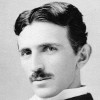“ The virtue of a free man is seen to be as great, when it declines dangers, as when it overcomes them. ”
Baruch Spinoza, Ethics (1677). copy citation
| Author | Baruch Spinoza |
|---|---|
| Source | Ethics |
| Topic | danger virtue |
| Date | 1677 |
| Language | English |
| Reference | |
| Note | Translated by R. H. M. Elwes |
| Weblink | http://www.gutenberg.org/files/3800/3800-h/3800-h.htm |
Context
“this freedom was afterwards recovered by the patriarchs, led by the spirit of Christ; that is, by the idea of God, whereon alone it depends, that man may be free, and desire for others the good which he desires for himself, as we have shown above (IV. xxxvii.) .
PROP. LXIX. The virtue of a free man is seen to be as great, when it declines dangers, as when it overcomes them.
Proof.—Emotion can only be checked or removed by an emotion contrary to itself, and possessing more power in restraining emotion (IV. vii.) . But blind daring and fear are emotions, which can be conceived as equally great”
source


